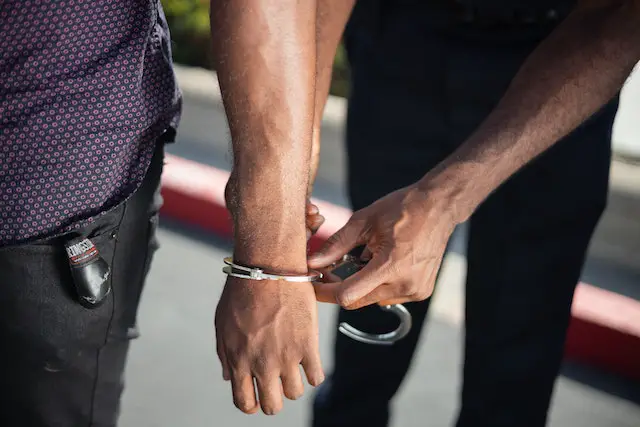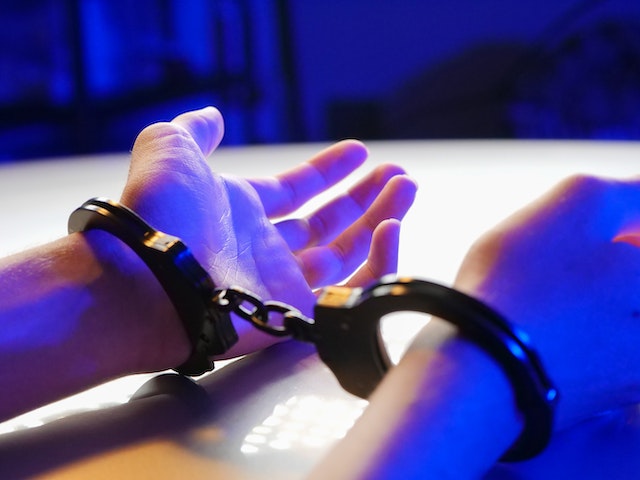
How do I know if I have been Charged with a Crime | 9 Steps
The contents of this web page are for informational and educational purposes only, and nothing you read is intended to be legal advice. Please review our disclaimer before taking action based upon anything you read or see.
How do I know if I have been charged with a crime? Many individuals usually ask this question. Thus, we have made this post to aid you. A prosecutor will file official allegations known as criminal charges against a defendant in court.
Charges come before the court and may result in a trial or a plea agreement when the defendant either admits guilt or denies it. You could be questioning whether you are being charged with a crime if you are under arrest or are the subject of an investigation into a crime.
The criminal justice system may often be complex and perplexing. Additionally, it might be difficult to distinguish between being under arrest and facing criminal charges.
However, knowing whether you must undergo prosecution is critical because criminal accusations may have significant repercussions. This post reviews how to determine if you have been charged with a crime. Come along.
How do I know if I have been charged with a crime?

The following steps will aid you in knowing if you have been charged with a crime:
- Arrest and booking
- Initial appearance and arraignment
- Preliminary hearing or grand jury
- Discovery and plea bargaining
- Pre-trial motions and hearings
- Jury selection and trial
- Verdict and sentencing
- Appeals process
- Post-conviction relief and expungement
Here is a detailed outline:
Arrest and booking
When an official takes someone into custody due to suspicions of criminal behavior, an arrest takes place. The police officer must have probable grounds before making an arrest, which is proof or data that would make someone with reason think the suspect is guilty of a crime.
You possess the right to counsel and the freedom to remain silent if you are under arrest. It’s crucial to use these rights to avoid being guilty of anything. To accomplish an arrest, authorities may use force, though they are only under obligation to use the smallest quantity of force essential.
Initial appearance and arraignment
You will be notified of your rights and the allegations against you during your first court hearing. The court will also decide whether you qualify for bail and, if so, will establish the conditions of your release.
You will enter a guilty or not guilty plea to the accusations leveled against you during your hearing. You will be officially in accusation of a crime during your arraignment. And if necessary, a trial date will also be in place. You are liable for legal representation during your first court appearance and trial.
As for the allegations brought against you, you can enter a not-guilty plea. Additionally, asserting these rights is crucial to avoid being forced to testify against oneself and guarantee that you get proper treatment at all times.
Preliminary hearing or grand jury
A preliminary hearing is a legal procedure that helps to ascertain if there is sufficient evidence to support a trial. The defense can usually cross-examine respondents and submit its findings after the prosecution makes its case.
A grand jury conviction is another procedure where a group of individuals hears the prosecution’s evidence. They also determine if sufficient evidence exists to file formal charges against a person.
Work diligently with your lawyer to prepare your case if you are up for an initial court hearing or grand jury conviction. Please review all the data in your favor and create a plan to refute it.
Additionally, your lawyer can guarantee that your rights are a priority at every hearing or grand jury conviction stage by assisting you in understanding the processes and regulations that apply.
Discovery and plea bargaining
The process through which both sides share essential details and proof is a discovery. This is crucial for both parties to prepare their cases for trial.
The investigating officer and the defense can gather proof during discovery, such as witness testimony, police reports, and tangible objects. This is essential to developing a compelling argument and comprehending the claims made by each side.
Plea bargaining refers to a deal both sides reach in which the defendant admits guilt to a less serious charge in return for a shorter sentence. Plea negotiating may be advantageous since it can lead to a shorter sentence and save a drawn-out trial.
Even if they are innocent, defendants could feel under pressure to accept a plea deal. Before adopting a plea bargain, it’s crucial to consider the advantages and disadvantages and speak with legal counsel.
Pre-trial motions and hearings
Motions filed by either the prosecution or the defendant before a trial are known as pre-trial motions. Requests to suppress proof, requests to dismiss allegations, and applications to alter the venue are common pre-trial applications.
Motions filed before trial may significantly affect your case. A move to suppress evidence might lead to excluding certain evidence from the trial. Additionally, the matter can be completely dismissible in response to a request to dismiss charges. Consulting with an experienced attorney is crucial to determine the suitability of pre-trial motions in your case.
A judge hears arguments from all sides of a matter during a hearing and then renders a judgment based on the facts given. Hearings may be convened in criminal cases to rule on pre-trial motions or the admission of proof.
Jury selection and trial
A crucial step in the criminal trial procedure is the jury selection and trial. The jury’s decision on the defendant’s guilt or innocence is final. Therefore, the jury must be neutral and impartial.
The process of interviewing prospective jurors to establish their suitability for the trial is a jury selection. Potential jurors may undergo questioning by both the prosecution and the defense to uncover any biases or preconceptions affecting their capacity to provide an unbiased judgment.
Verdict and sentencing
The offender may get jail time, community service, or probation fines as a penalty after the conclusion of a criminal prosecution. The offender may also obtain parole after fulfilling a part of their term if they prove themselves guilty and receive a jail term. The defendant may resume their regular life if they prove not guilty and the charges get withdrawal.
Appeals process
You can appeal the judgment if you or your counsel believe the outcome or sentence was unfair or discriminatory. The trial will be examined by an appeals court to see whether any mistakes would have impacted the decision or punishment. The appeals court can mandate a new trial or punishment if a mistake is in view.
Post-conviction relief and expungement
You still have ways to clear your record if you previously went through the court procedure and were found guilty. Post-conviction relief enables you to appeal your conviction in light of fresh evidence or procedural mistakes. An expungement enables the concealment of a conviction from the general public.
It is crucial to comprehend the rules and specifications for each choice and obtain legal advice.
Conclusion and resources for legal assistance
Although traversing the criminal justice system may be difficult, knowing your rights and available tools is crucial. Having a knowledgeable attorney if you’ve been in a criminal accusation is also critical so that they can help you through the legal system. Protecting your rights and ensuring a fair legal procedure may be possible by speaking with an attorney and being aware of due process.
Additionally, defendants have access to a wide range of legal services, such as public defense attorneys and legal aid organizations. Non-profit groups are another option that provides legal aid to anyone who cannot pay for an attorney.
My Opinion
If you desire to know if you have been charged with a crime, the above tips will aid you greatly. Additionally, it is advisable to exercise your right to avoid self-incrimination. Additionally, you have the right to avoid becoming the victim of uncalled-for violence or unfair treatment.
References
- Vinson, Carl.; Your Basic Constitutional Rights in the Criminal Justice System: https://www.georgialegalaid.org/resource/your-basic-constitutional-rights-in-the-crimi
- Criminal Records Act: https://laws-lois.justice.gc.ca/eng/acts/C-47/page-2.html?txthl=vulnerable#s-6.3
- How to obtain an Overseas Criminal Record Check: https://web.archive.org/web/20160717192709/https://www.cpni.gov.uk/documents/publications/2014/2014-04-28-overseas-criminal-records-check.pdf?epslanguage=en-gb

I’m a driven and accomplished law graduate and post-graduate, passionate about sharing my legal expertise via my blog. I hold a Bachelor’s degree in Law from the University of London (UK) and a Master’s in Law from the University of Derby (UK). Both gave me the foundational knowledge and skills to excel in my chosen career path.
Throughout my academic journey, I have gained extensive knowledge in various fields of Law, including Corporate and Business Law in the USA, Criminal Law, International Law, US Copyright law, and most importantly, American Constitutional law.


Comments are closed.